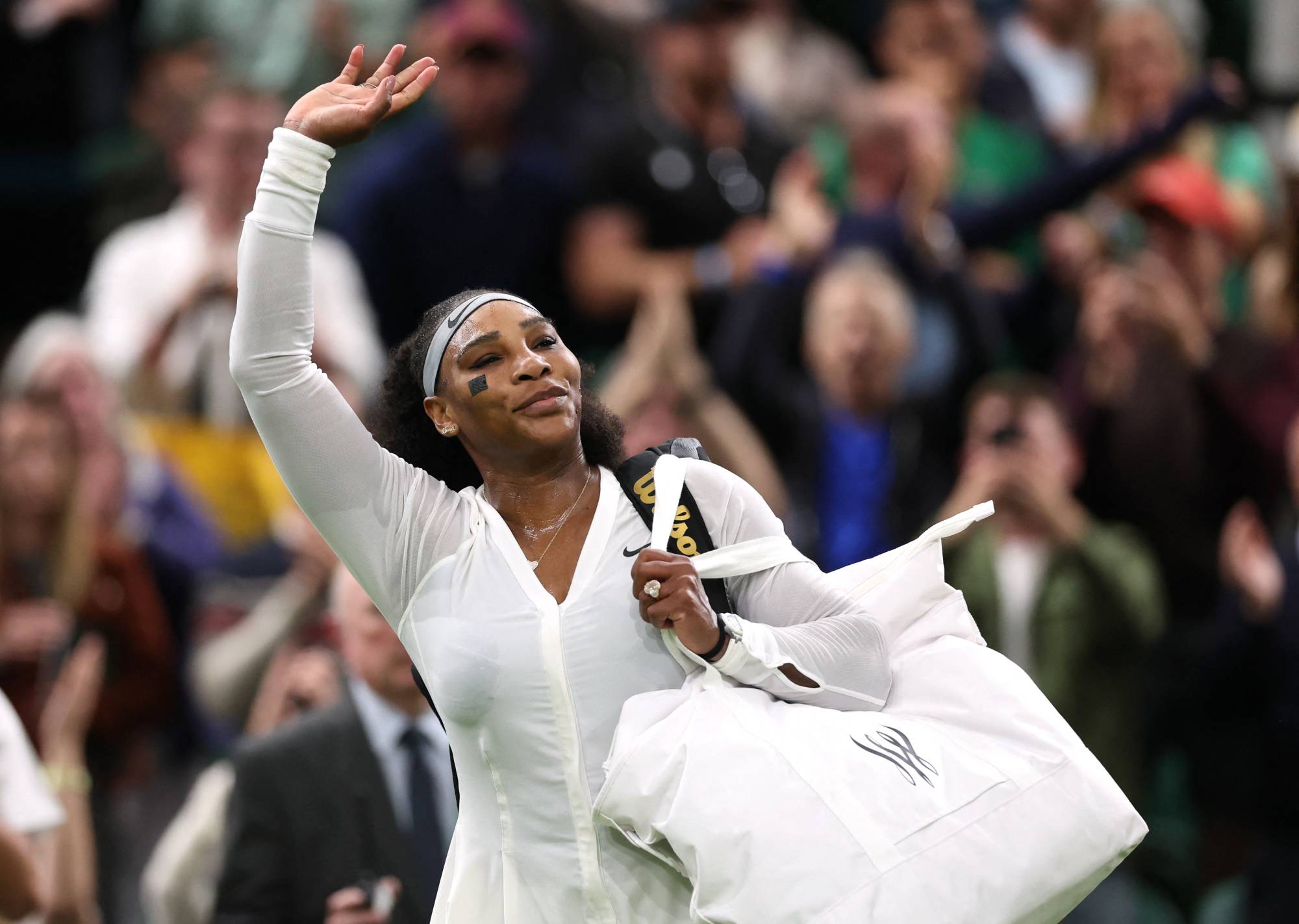It was the 21st time that Serena Williams had played Wimbledon. It was Harmony Tan’s first time, but Tan will be the player heading to the second round at the All England Club.
Tan, a Frenchwoman ranked 115th who is little-known even in her country, defeated Williams, the greatest women’s tennis champion of her era, 7-5, 1-6, 7-6 (10-7). Williams had not played a singles match on tour since retiring in the first round of last year’s Wimbledon in tears with a hamstring injury, but she got to play plenty of tennis Tuesday evening on the Center Court where she had won seven Wimbledon singles titles. Her grueling duel with Tan was a stylistic contrast that lasted three hours and 11 minutes. What was missing for Williams was the upbeat, reaffirming finish, and she did not hesitate when asked if she was OK with this being her final Wimbledon memory if that was the way it turned out.
"Obviously not. You know me. Definitely not,” Williams said. "But today I gave all I could do, you know, today. Maybe tomorrow I could have gave more. Maybe a week ago, I could have gave more. But today was what I could do. At some point, you have to be able to be OK with that. And that’s all I can do. I can’t change time or anything.”


















With your current subscription plan you can comment on stories. However, before writing your first comment, please create a display name in the Profile section of your subscriber account page.